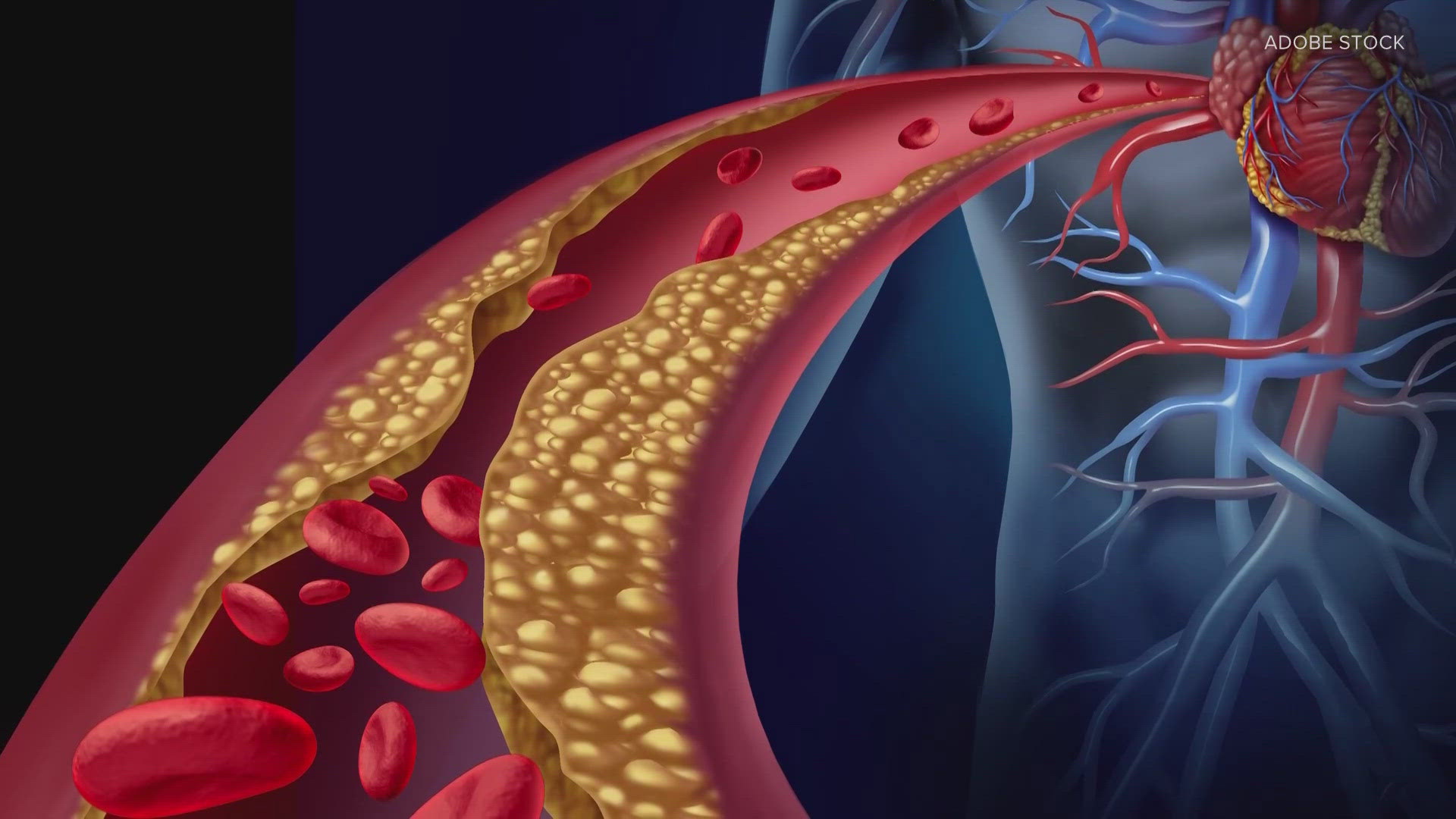SEATTLE — It's one of the most basic health screening tests and one of the most important. A person's cholesterol levels can reveal a lot about their cardiovascular disease risk.
"Those levels, over the course of someone's lifetime, is one of the single-best predictors of a risk of heart attack or stroke," said Dr. Amy Cheney, a cardiologist at Overlake Medical Center.
When a patient gets cholesterol tested from a blood draw, doctors will focus on several figures measuring their overall cholesterol count, triglycerides, and their HDL and LDL cholesterol.
"We really want a high level of HDL, and as low as possible of LDL," Cheney said.
HDL is short for "high-density lipoprotein," which is considered "good" cholesterol. LDL is "low density," which is known as the "bad" cholesterol.
"Circulating LDL is really the culprit," Cheney said.
Here's why.
Over time, LDL cholesterol can build up as plaque in blood vessels.
"If it adheres to the coronary arteries, which are the arteries that supply the heart, then that can lead to a heart attack," Cheney said.
A blockage in the vessels in the brain could lead to a stroke.
"So what we're trying to do is to reduce that as low as possible because if there's not the building blocks that create this plaque, if there's fewer and fewer of those building blocks, then people are less and less likely to have adverse events to which we think of as heart attack and stroke," Cheney said.
Ideal levels of LDL are below 100 milligrams per deciliter of blood. Healthy levels of HDL should be above 60 milligrams. While older people have a greater risk of concerning cholesterol levels, young people should pay attention too.
"That includes whether you're an adult, a young adult, a child, believe it or not, 5 to 7% of children have elevated cholesterol," Cheney said.
High cholesterol can also be hereditary.
"If you have a first-degree relative, mom, dad, brother, sister, who has had a heart attack at a young age, we know there is something going on in the genetic material that's predisposing that family to have those events," Cheney said.
That's why doctors recommend getting cholesterol tested regularly. Centers for Disease Control and Prevention guidelines say low-risk adults should get cholesterol tested every four to six years. If you're at higher risk, more often than that, though the recommendations don't specify how often.
A patient can lower "bad" LDL cholesterol levels by cutting saturated fat from their diet; things as red meat, fried foods and butter, and exercising regularly. Eating more foods rich in HDL cholesterol like avocados, nuts and fish, may also help.
Part of why HDL is good is because it takes excess cholesterol in the blood back to the liver, where it is metabolized and removed from the body.
"Get your cholesterol checked. If maybe it's completely normal, and maybe it's something that just needs to be monitored, but in the off chance that it isn't, it's something you want to know about sooner rather than later," Cheney said.
For some patients, doctors may prescribe medication that reduces cholesterol levels in the blood. Cheney says it's a case-by-base situation so it's important to talk to your doctor.

